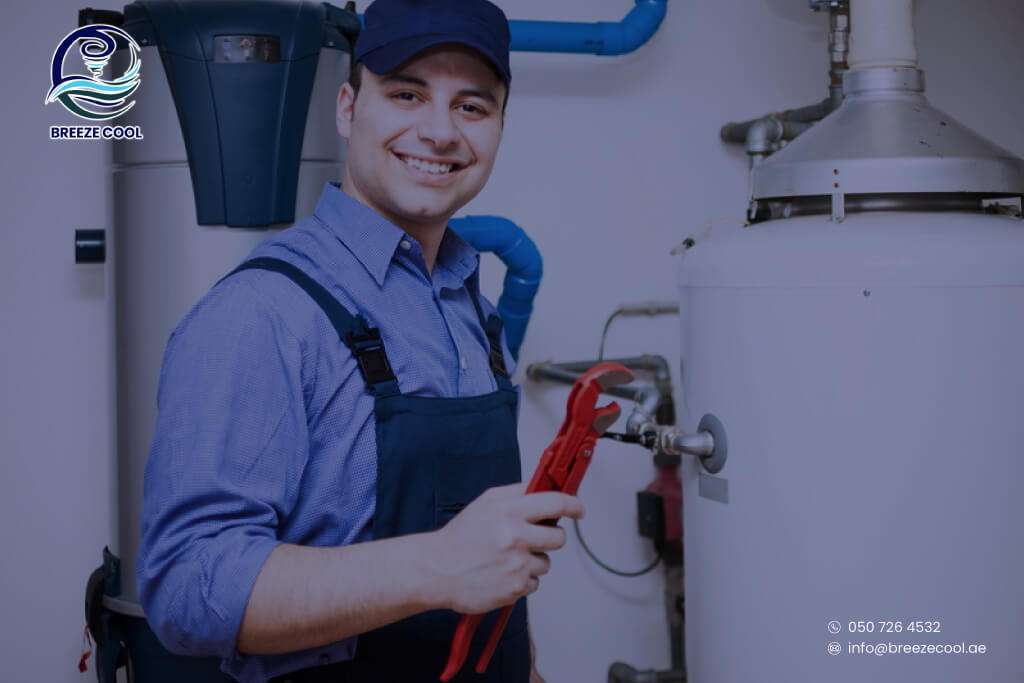Have you ever considered what is essential at home in extreme weather conditions? If we talk about our physical existence, we have blankets and garments for every season. At the same time, regarding our places, air conditioners for summer and heating systems for winter are essential. This blog aims to talk about the heater and its installation. So, a new heater installation is a substantial investment like an AC installation, and the decisions made during this process can significantly impact the warmth and coziness of your living space. This guide explores the critical considerations for heater installation, helping you make informed choices for a snug and efficient home.
Regarding a new heater installation at your place, we have a list of considerations you have to care for. But we will discuss them after digging for the right time to install a new heater.
The right time for heater Installation
According to experts, summer days are best for installing a heater because it offers several advantages:
- The absence of heating demand makes the system out of commission without disrupting your comfort.
- Heating installers experience a lull in their workload during warm months, making scheduling an installation at your convenience easier.
- The ample time available during the summer provides an opportunity to thoroughly research various manufacturers and equipment options to find the best fit for your needs.
- Manufacturers and suppliers typically restock their inventories following the busy winter season, ensuring that parts are readily available during the summer.
Things to consider before heater installation
We hope you have got our point of the right time for installing a new heater at your place. Now, let us move to our primary topic, which is the things to consider before installing heater equipment.
Types of Heating Systems
Like air conditioners, there are various types, which is the most essential point to consider. Each system has advantages and drawbacks, from the traditional furnace to modern heat pumps. So, all we have to do before installing a new device is discover which type of heating device suits us.
Q. How many types of heaters are available in the market?
The market consists of various heating system types like Furnace systems, In-Floor Radiant Heating Systems, Electric water heaters, and boilers.
Q. Which heating system is most frequently used in newly built homes?
The most famous house heating system is, without a doubt, the forced air distribution system. They employ a furnace with a blower fan that uses a system of ducts to distribute warm, conditioned air to all of the rooms in the house.
Assessing Heating Needs
This point relates to the previous one, which considers the type. So, before we initiate the installation process, it’s crucial to assess your heating needs accurately. Moreover, it is the perfect warmth for your space, tailored to its size, insulation, and the unique embrace of your local climate. It’s not just about heat—it’s about coziness without the energy waste. Take charge of keeping your home snug and efficient because comfort should feel as good for the planet as it does for you.
Q. Should I consider the role of proper ventilation while installing a heater?
Yes, considering the role of proper ventilation heater installation. Adequate ventilation ensures the safe and efficient operation of the heater, preventing the buildup of harmful gasses and maintaining indoor air quality.
Budgetary Considerations
Heating your home is an investment; budget considerations are paramount, like any investment. Beyond the system’s initial cost, it’s essential to weigh the long-term operating expenses. Exploring financing options and available incentives can help make this crucial decision more financially feasible.
Energy Efficiency and Environmental Impact
If considering the budget is essential before a heater installation, then ignoring the energy cost will also be a poor idea. So, realize that choosing an energy-efficient system reduces costs and minimizes your carbon footprint, which is an additional benefit. In such an era where environmental consciousness is critical, your heating choices should contribute to a greener tomorrow.
Sizing and Capacity
An energy-efficient device is only helpful if you go for a proper-size heater. We know that a single size does not fit all types of places. So, determining your home’s proper size and capacity ensures low energy costs and optimal performance. So, keep the discomfort away with the appropriate size of the system. Moreover, do not burden your savings with the unnecessary costs of an oversized machine. So, consult professionals who can accurately size your heating needs.
Professional Installation vs. DIY
The process of selecting a device according to your needs and the size of the place is completed here, and it is time for heater installation. Here, the question of professional assistance versus a do-it-yourself approach arises. Undoubtedly, DIY passion is admirable, but the complexity and safety considerations of heater installation often warrant the expertise of professionals. Moreover, a wise decision is “safety first, warmth second” for a cozy, secure home.
Q. What tools should I have when installing a heater on my own?
The list of tools comprises:
- Multimeter.
- Thermometer.
- Cordless Drill.
- Sawzall.
- Manifold Gauge.
- Extension Cord.
- Tubing Cutter.
If you have yet to gain experience in heater installation, then calling a professional would be the best idea. Installing a device without these tools may lead to a loss.
Maintenance and Upkeep
If you have owned an AC or a vehicle for a long time, who can better explain the car’s value or AC maintenance? On the other hand, a heater falls under the same criteria, and once the heater is in place, regular maintenance becomes the key to its longevity. Proper routine inspections and servicing in your home care routine ensures a well-functioning system and prevents potential issues from escalating. It is why experts suggest treating the heater with the care it deserves. In return, it reciprocates with consistent warmth for decades.
Troubleshooting and Common Issues
Though regular device maintenance keeps the heating system healthy, heaters can encounter issues despite all precautions. So, preparing yourself to identify and address common problems also becomes critical while installing a new heater. The list of topics starts from irregular heating patterns to unusual sounds. A proactive approach to troubleshooting these issues ensures your warmth in your home for a long time.
Conclusion
The process of heater installation is technical. At last, it’s a commitment to the comfort and well-being of your home. Moreover, by considering the system type, assessing your needs, staying mindful of your budget, and prioritizing energy efficiency, you pave the way for a cozy environment at home. At the same time, whether you choose professional installation or embrace a DIY adventure, the key is making wise decisions that resonate with your home.

